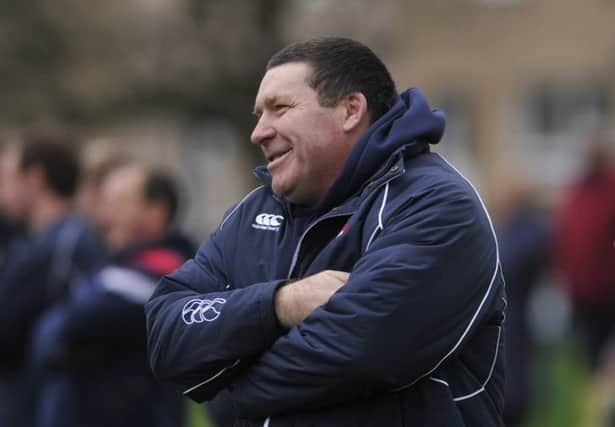Allan Massie: Selkirk the stand-out club of year


Another oddity has been the dearth of drop goals – only two in the first nine matches, and George Ford’s against Ireland came when the referee had signalled a penalty for England and was playing advantage. Yet, in these days of blanket defences, going for a drop goal is often the sensible option, a comparatively easy way of keeping the scoreboard ticking. Certainly, in the modern game, there are more opportunities to drop a goal than to score tries, but nobody at present seems as alert to the chance as Jonny Wilkinson and Ronan O’Gara were only a few years ago.
Never mind. The matches have been entertaining and it is amusing to hear the All Blacks coach, Steve Hansen, muttering about boring Northern Hemisphere rugby, with too much box-kicking. Given that New Zealand kick more than any other team, more even than South Africa and Argentina these days, and use the box-kick a lot, this was a bit strange. They do, of course, kick much more accurately than Scotland, Italy, France and England tend to. France, one might add, are playing so badly that it might be worth putting a bet on them to win the World Cup in the autumn, simply because of the hunch that things must come right for them some day. There would be more chance of that happening if Philippe St-Andre always picked Morgan Parra to start at scrum-half – and kept him on the field for 80 minutes. Now the word is that they may be without Parra and Wesley Fofana for the last two rounds. If they are indeed missing in Rome next week, Italy will probably be favourites to win.
Advertisement
Hide AdAdvertisement
Hide AdMeanwhile, Scottish gloom may be alleviated by the reflection that our under-20 side, coached by Sean Lineen, have beaten both Wales and Italy. Since our record at age-group international rugby is poor, this is at least encouraging.
There is now so much professional rugby on television that it is easy to forget that, by far, the greatest part of the game is still happily amateur. This afternoon, Selkirk will be presented with the National League Division One champions’ trophy. Back in the early autumn, I remarked to someone standing beside me on the touchline, “if we go on playing as well as this we’re in danger of being promoted”. Well, that has happened, not only promoted, but as champions, with three matches still to be played. For one reason or another, I haven’t been able to get down to Philiphaugh as often as I would have wished, but the club’s record is remarkable, having won all their league games. All that remains to be done now is to finish the season with a hundred per cent win record. That would be some achievement, but, even as it is, Selkirk are surely the club of the year.
Recruiting Peter Wright, the former Boroughmuir, Scotland and Lions prop, as head coach was clearly a masterstroke, not only because of the experience and enthusiasm he has brought, but because he has recognised that amateurs play rugby for fun and so training sessions, as well as matches, should be enjoyable. Though the pack regularly includes three or four “outsiders” – some of whom have, however, been at Philiphaugh for a few seasons now – the mostly young backs are all home-grown, products of the high school and youth club. They have been playing sparkling and audacious rugby, and it will be interesting to see how they face up the stiffer challenge in store for them next year. I’m pretty sure they will continue to play in the same adventurous spirit.
Selkirk’s promotion means that there will be four Borders clubs in next season’s Premier League, which is almost like a return to the old days when the South of Scotland used to win the District Championship and the Borders clubs regularly supplied at least half of the Scotland XV. Six of them were represented in the 1984 Grand Slam side: Gala (Peter Dods, Jim Aitken and David Leslie), Hawick (Colin Deans, Alastair Campbell and Alan Tomes) Selkirk (John Rutherford and Iain Paxton), Kelso (Roger Baird), Melrose (Keith Robertson) and Jed-Forest (Roy Laidlaw). Not a southern hemisphere import in sight and not a single one of them dependent on a grandparental qualification. Happy days, but past ones now. Incidentally, most of those listed here were in the XV that secured our last victory at Twickenham in March 1983, one of the tries being scored by Gala lock Tom Smith, the other by Laidlaw, while Keith Robertson dropped a goal.
FOLLOW US
SCOTSMAN TABLET AND MOBILE APPS